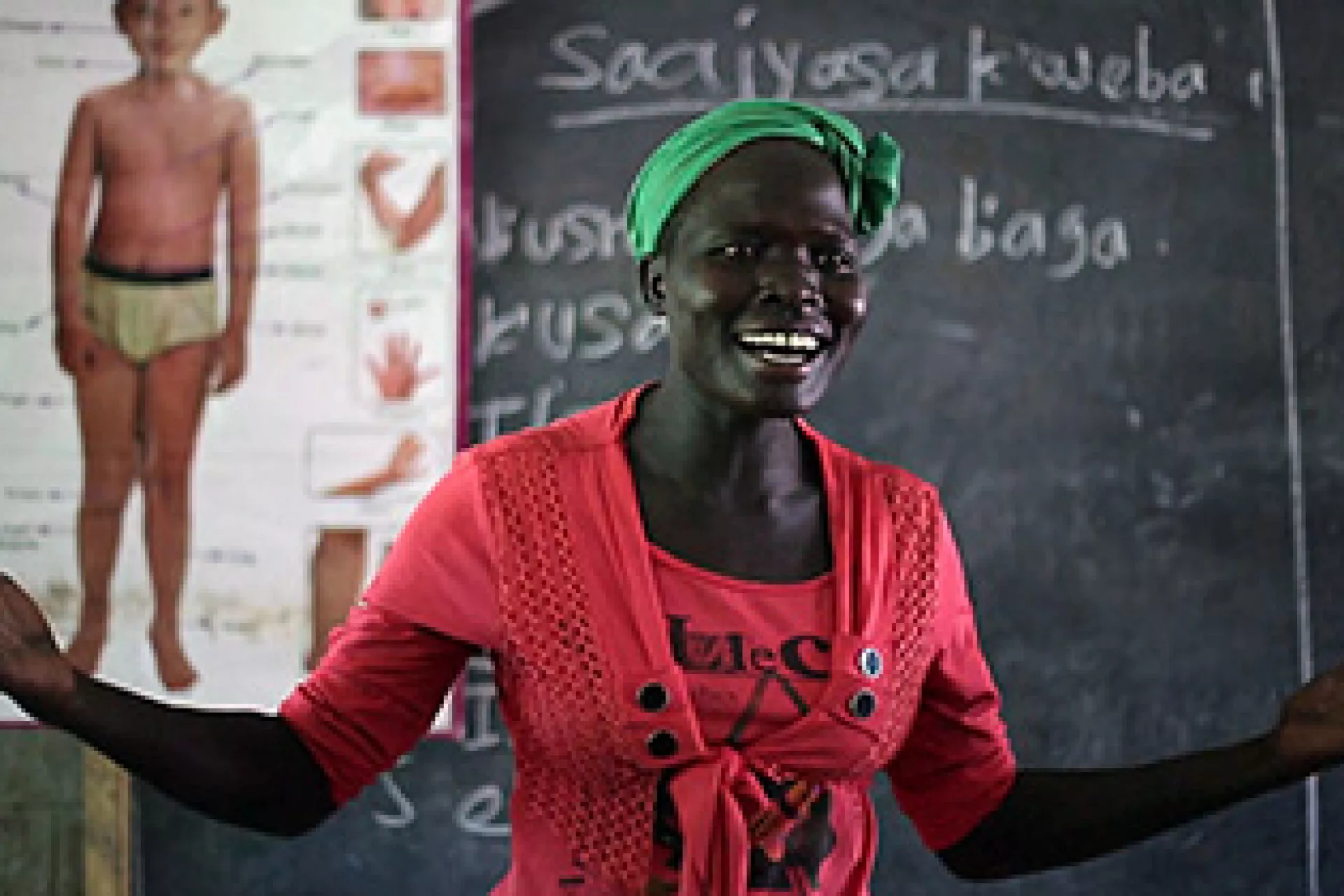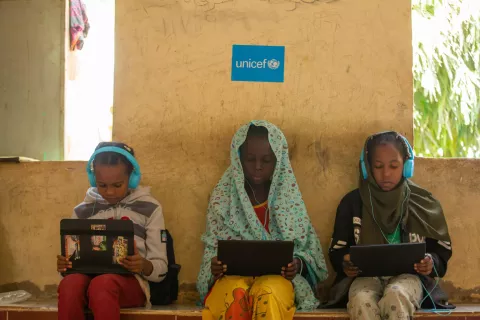A day in the life of a teacher in Ethiopia
This World Teacher’s Day, meet a teacher in Ethiopia helping her students teach the youngest members of their community

BENISHANGUL-GUMUZ, Ethiopia, 5 October 2016 – Bek’elech Merga wakes up every morning at 6:00 a.m. to prepare for her classes. As a young elementary school teacher, she teaches grade 5 at ShimelaKono School in Ethiopia’s Benishangul-Gumuz region in the western part of the country. But her early mornings also help her tackle her other responsibilities – in addition to her regular class, Bek’elech is providing support for her older students, who are learning to become teachers themselves.
“I begin in the morning by revising the class and helping students go through different sessions. After break, I encourage child-to-child facilitators to engage with the young children who are new to any form of education,” she says.
Bek’elech’s student-teachers give lessons in basic language and arithmetic to preschoolers. She says that this new practice has improved learning outcomes for both the preschoolers and the older facilitators.
Peer-to-peer learning
According to the recent education statistics, nearly 62 per cent of children in Benishangul-Gumuz enter grade 1 without having the necessary early learning experiences. Other children enrol late, and are at risk of dropping out of school too early.
However, children who receive early learning opportunities are not only more likely to go to enrol in primary school, they are more likely to enrol at the right age and more likely to stay, do well and complete school.
Since 2013, with the support of UNICEF, the Child-to-Child school readiness programme has been implemented in the region to help rural children get ready for school. The purpose of programme is to improve children’s school readiness by having older children (facilitators) conduct early learning activities with preschool aged children in their home villages. By the end of the programme, children are expected to achieve basic pre-literacy and numeracy competencies that can support their successful transition into grade 1.
So far the programme has proven to be highly successful – young children who participate have significantly higher scores on all early numeracy and literacy tasks compared to children who do not participate. The facilitators also show great results. Their performance in school improves, and overall they feel happier at school, more confident, and have more positive attitudes towards learning.
Helping young facilitators
K’ejela Tesgaye, a grade 6 student, is one of Bek’elech’s facilitators for preschoolers in the village of ShimelaKono. He is in charge of teaching and motivating five children who are between the ages of 5 and 6.

K’ejela Tesgaye teaches preschoolers in his village. He is a facilitator in the Child-to-Child school readiness programme, which helps rural children get ready for school.
“When I first enter the class, I make them laugh. Then I dance for them. After they had fun, we start the lesson,” he says.
“If there are children who are scared as we are about to start class, I tell them that I am their brother and that they shouldn’t be scared.”
When he interacts with the preschoolers, K’ejela uses different story books, developed with the support of UNICEF, that help children’s numeracy and literacy skills. If he finds something difficult in the sessions, he consults with Bek’elech who also had received specialized training in child-centred pedagogy to support and mentor young facilitators.
Bek’elech recalls the beginning of the child-to-child sessions with a smile. “In the past [the pre-schoolers] used to run away and play in the woods. They only show up four times in two weeks. But now they do not want to be absent even for a single day.”
K’ejela is also happy that he can motivate his little class to achieve. “The students who went to school are very bright and it’s because they went to preschool. Their results are greater than that of the other kids.”
Although there have been significant increases in pre-primary education enrolment in Ethiopia, more than 61 per cent of children from the rural and hardest to reach communities miss out on early learning services.
Before Bek’elech heads back to her home, she makes sure the facilitators receive support for the day and checks to see if all the child-to-child sessions are taking place. Then she prepares her lesson for tomorrow. She ends her day with a dream that drives her to keep going fresh for the next day: “I will be very happy if the children that we are teaching finish their education and help the country,” she says.




